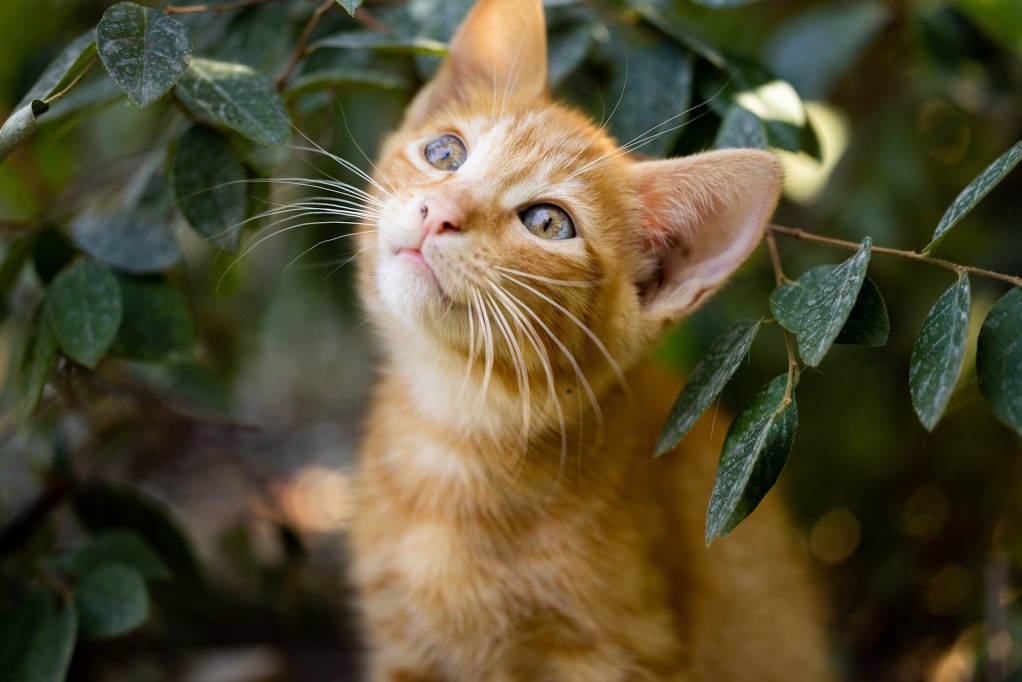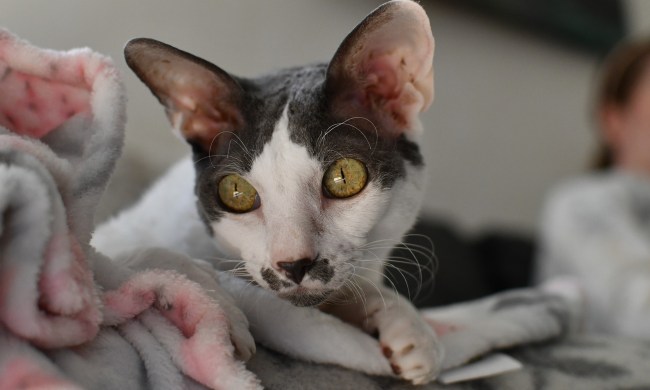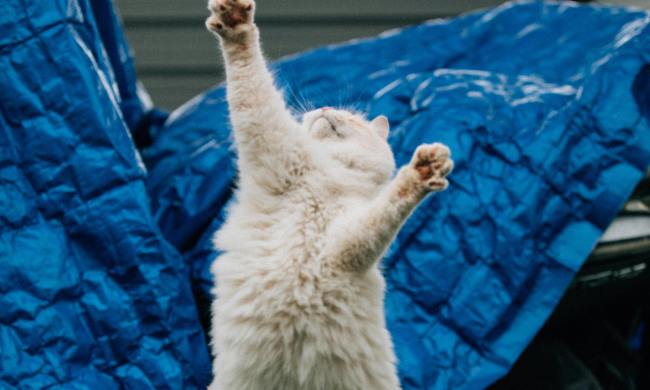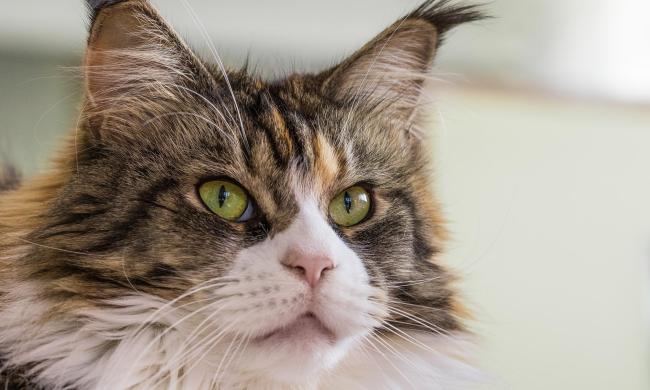If you already love cats, then you’ll be one of the first to tell everyone you know how cute they are. From their bright eyes and adorable ears to their whiskers and expressive tails, cats are undoubtedly one of the most precious creatures to walk the planet. But did you know there’s actually a scientific reason we think cats are cute?
In fact, science can explain just about everything these days, including one of life’s greatest cat-related mysteries. A cat’s whiskers are one of its defining characteristics, but have you ever wondered, “Why do cats have whiskers?” We’re here to give you the full scoop.
What are whiskers?

Just like most mammals, cats are covered from head to toe in hair. While their whiskers grow from hair follicles just like the rest of their coat, whiskers are thicker and rougher in texture than the hair that covers the rest of their body. The whiskers’ roots are also around three times deeper than the roots of normal hairs. Some variation can occur in different cat breeds, but for the most part, all cats have 12 whiskers on each side of their face, which grow in rows of four on each cheek. Whiskers can also be found above your cat’s eyes, on her forelimbs, and located close to her ears.
Unlike the rest of your cat’s coat, her whiskers are incredibly sensitive because the follicles they erupt from are full of nerves and blood vessels. In fact, the nerve clusters surrounding a cat’s whiskers are so sensitive that they can detect even the slightest air current, which causes vibrations in the whiskers. According to Dr. Bruce Kornreich, the director of Cornell University’s Cornell Feline Health Center, “Whiskers are special. In the follicles, there are sensory neurons that go to the brain to give information about tactile interactions with the environment.”
Why do cats have whiskers?

Not only are cats’ whiskers adorable, but they’re also extremely functional. Cats use their whiskers in a variety of ways, including the following.
Fitting into tight spaces
If you’ve ever watched your cat investigate a box or another small space by poking her head inside, you’ve witnessed one of the most interesting ways cats use their whiskers. Because cats can’t measure spaces with a ruler, they use their whiskers to assess how large nooks and crannies are, allowing them to fit into tight spaces.
Protecting their eyes
The whiskers located above a cat’s eyes and above their top lip help capture airborne dust and debris, preventing detritus from scratching their delicate eyes. When a cat’s whiskers detect a foreign object, it causes them to blink to shield their eyes from harm. A cat’s whiskers also help them find the presence of sharp objects, such as the corners of furniture.
Built-in radar detection
A cat’s whiskers can sense even minute changes in air currents, allowing them to find their way through their home in the dark. For outdoor cats, this intense awareness of vibrations allows them to sense the presence of approaching vehicles, predators, or prey animals.
Making up for poor vision
Interestingly, cats are actually nearsighted but not close-sighted, meaning that their large eyes are incapable of focusing on objects less than a foot away. Fortunately, their whiskers come in handy, allowing them to sense where objects are located by touch — or by relying on the way air currents move around objects in space. In fact, a cat’s whiskers are so sensitive that they can even sense the texture of an object.
Telling their mood
Lastly, a cat’s whiskers are a solid indicator of its mood. If they hold their whiskers flat against their face, they’re most likely scared. Relaxed whiskers projecting toward the sides of their face mean they’re feeling calm and comfortable in their surroundings.
Is it OK to pet a cat’s whiskers?

Unlike the hair on your head or the fur on her back, whiskers are extremely sensitive. Some cats will allow a gentle petting on their whiskers, but they might only like one direction or a certain stroke — or not at all. Don’t take this as a sign that your cat doesn’t enjoy attention.
Because this part of the body is easily stimulated, your cat could receive messages from your pets, even if you don’t intend to send them. Unless your little kitty shows a true preference for you to gently rub her whiskers, we recommend leaving this area of the body alone.
Do whiskers ever grow back?

Some cats like to play rougher than others, and sometimes whiskers need to be trimmed by the vet during certain procedures. Whether your feline friend has damaged her whiskers while roughhousing with a playmate or had them trimmed by a vet, you might be wondering how it will affect her sense of navigation.
But we have good news: As long as the hair follicle remains intact, your cat’s broken or damaged whiskers will grow back just fine. While cats typically don’t lose more than a couple of whiskers at a time, losing a whisker or two during the shedding process is perfectly normal.
Our conclusive thoughts on cat whiskers

Who knew whiskers were so complex? Now that you know more about the science behind your fur baby’s whiskers, you’ll be able to make sense of why your cat twitches them so frequently as she stalks through the house. If only our GPS apps worked as reliably as a cat’s whiskers.




